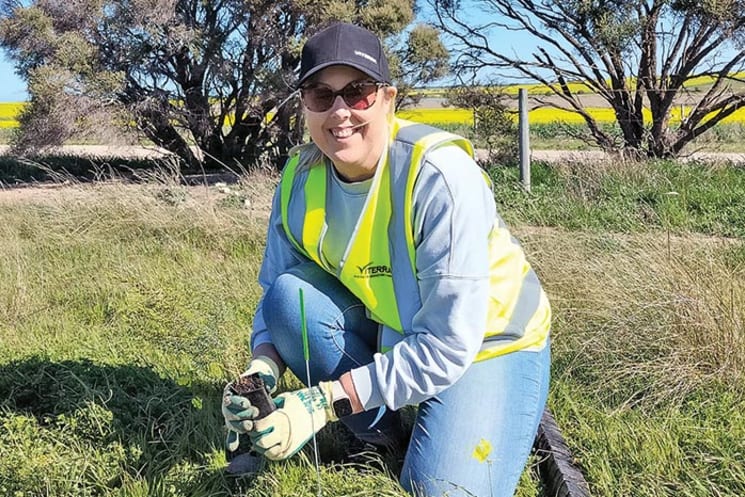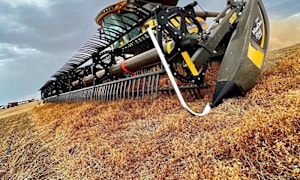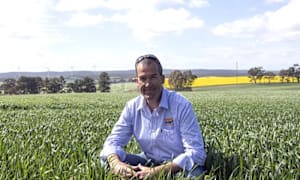
ON TRIAL... Viterra employee Jessica Williams helps to plant flowering native species as part of a research trial to boost populations of parasitic flies for controlling conical snails.
A REVEGETATION trial to support flies which act as a biocontrol for conical snails has begun at five sites on Yorke Peninsula.
A mix of 17 native species found in the area is being planted at the sites to provide sustenance to the parasitic fly, Sarcophaga villeneuveana.
The nectar and pollen from the flowering plants is believed to provide nutrition and shelter for the flies, enabling them to live longer and produce more offspring.
The three-year research program is supported by the South Aus-tralian Grains Industry Trust, the Grains Research and Development Corporation and Viterra, in partnership with Trees for Life and Grain Producers SA.
The trial sites are near Honiton, Yorketown and Nalyappa as well as at the Viterra sites at Ardrossan and Port Giles.
South Australian Research and Development Institute senior research scientist Dr Kym Perry said the flies had been brought out from France and released on the peninsula between 2000 and 2004.
The grubs of the fly live on the shells of conical snails, Cochlicella acuta and Cochlicella barbara, before eating the snail and emerging as an adult fly.
Dr Perry said overall, the flies had shown only a low level of parasitism of the snails, with an average rate of two per cent.
“However, at certain sites on YP we have seen parasitism levels of 30 to 40 per cent and all those sites had native plants nearby which flower in spring and summer,” he said.
Dr Perry said levels were measured by taking snails back to the laboratory and assessing how many had been attacked.
“We sampled 19 sites, mainly south of Minlaton, because that’s where we find the most conical snails,” he said.
“They tend to do better on calcareous soils, because they need the calcium carbonate for their shells and reproduction.’’
The flies will be mass reared at SARDI then taken to the trial sites and released in spring and summer.
Flies will also be released at nearby control sites, where they will only have access to existing vegetation.
Dr Perry said snail control could be a costly and time-consuming year-round exercise for farmers.
“The flies will not eradicate the snails but they will help in overall management as another tool in the toolbox,” he said.
He said, if the trial showed revegetating with flowering native plants was worthwhile, there was potential plantings could also support other biocontrol agents, such as parasitic wasps which attack aphids and caterpillars.




